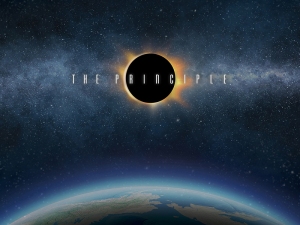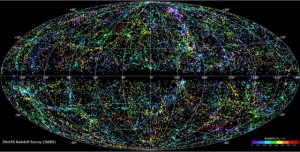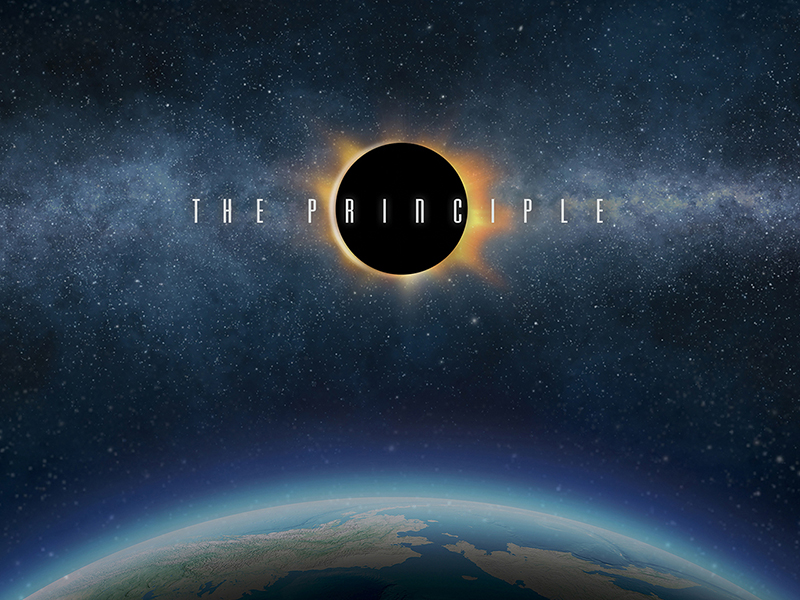A Review of The Principle

Shortly before his death in 1543, Nicolaus Copernicus published De revolutionibus orbium coelestium (On the Revolutions of the Celestial Spheres) in which he proposed that the motion of the planets could be better explained by assuming that the sun, rather than the earth, sits at the center of the universe (the Solar System being the extent of the known universe of his day). Up until this point, Western scientists had visualized the universe in accordance with Ptolemy’s geocentric model, which in turn traced its roots back to Aristotle.
Later, Enlightenment thinkers extrapolated the Copernican model into what is now known as the Copernican principle. The Copernican principle states that the earth is not in any specially favored or spatially central location in the universe. And although it has never been proven, and in fact is unprovable with current technology, the Copernican principle has become entrenched into an axiomatic presupposition of modern thought, as astrophysicist Michael Rowan-Robinson wrote in 1996, “It is evident that in the post-Copernican era of human history, no well-informed and rational person can imagine that Earth occupies a unique position in the universe.” Baby boomers may remember Carl Sagan pontificating, “Who are we? We find that we live on an insignificant planet of a humdrum star lost in a galaxy tucked away in some forgotten corner of a universe in which there are far more galaxies than people.”
What the Copernican principle has been generalized into is a philosophy which says human beings are nothing, and human life is ultimately meaningless. If Copernicus disabused us of the geocentric view, the thinking goes, then why should earth or its occupants be considered as anything special?
Leaving aside the obvious non-sequitur in that question, the Copernican principle became something of a godsend for nontheists. Because before Copernicus, the general assumption of all natural philosophy (the forerunner to modern science) had been that the earth and mankind were the product of some kind of creator, and therefore were objects of special focus in the cosmos. Once earth got “demoted,” as some put it, the Copernican principle became the tool by which nontheists would kick God out of their universe. It was “theological dynamite” in the words of atheist theoretical physicist Michio Kaku. “There’s nothing special about humans,” he continued. “We are nothing, absolute nothing.”
In What Way Is the Earth Moving?
The Principle, an expertly produced film narrated by Kate Mulgrew and featuring physicists Kaku, Lawrence Krauss (A Universe from Nothing), MIT’s Max Tegmark, and many others, reexamines the Copernican principle in light of recent cosmological discoveries. At the risk of oversimplification, The Principle makes the following points:
- According to Isaac Newton, neither the sun nor the earth sits at the center of the solar system (or universe). The smaller body doesn’t revolve around the larger, but rather, both bodies revolve around whatever point is the center of mass. “So even in the heliocentric system, it’s not the earth going around the sun. Scientifically and technically, we would say that the earth and the sun are going around one point called the center of mass,” said Robert Sungenis, producer of the film.
- Physicist Ernst Mach proposed considering the earth as the pivot point of the universe and said that if the universe were orbiting around the earth, it would create the exact same forces that we today ascribe to the motion of the earth. In other words, Mach’s principle said that we would see the same effects whether the earth was rotating in the universe or the universe were rotating around the earth. Mach’s ideas would influence and give way to Albert Einstein’s theory of relativity.
- Einstein’s special theory of relativity said that the length, time, and mass of objects change as those objects move through empty space. Echoing Mach, Einstein wrote, “The struggle, so violent in the early days of science, between the views of Ptolemy and Copernicus would then be quite meaningless. Either [coordinate system] could be used with equal justification. The two sentences, ‘the sun is at rest and the earth moves’, or ‘the sun moves and the earth is at rest’, would simply mean two different conventions concerning two different [coordinate systems]” (The Evolution of Physics, 1938).
From these and other points, the makers of The Principle suggest that we cannot definitively ascertain that the earth is in fact moving.
Is Earth the Center?
 From that basis, The Principle moves on to relate two aspects of Edwin Hubble’s 1929 discoveries. First, the universe is far more vast than had been previously believed – what astronomers had heretofore thought were stars were actually galaxies. And second, the universe is expanding – all those galaxies are moving away from the earth. In every direction, galaxies appear to be flying away from us, and the farther away they are, the faster they’re moving.
From that basis, The Principle moves on to relate two aspects of Edwin Hubble’s 1929 discoveries. First, the universe is far more vast than had been previously believed – what astronomers had heretofore thought were stars were actually galaxies. And second, the universe is expanding – all those galaxies are moving away from the earth. In every direction, galaxies appear to be flying away from us, and the farther away they are, the faster they’re moving.
Could this discovery of galaxies moving away from earth in all directions argue in favor of a geocentric universe? Hubble found the though most abhorrent. “Such a condition would imply that we occupy a unique position in the universe, analogous, in a sense, to the ancient conception of a central Earth,” he wrote. “This hypothesis cannot be disproved, but it is unwelcome and would only be accepted as a last resort in order to save the phenomena. Therefore we disregard this possibility … the unwelcome position of a favored location must be avoided at all costs … such a favored position is intolerable.”
Krauss was a lot more flippant about it, but he holds the same view. “Of course, that makes us look like we’re the center of the universe, but it’s not true. It just means the universe is expanding uniformly.” Perhaps it is. Or perhaps that conclusion is required in order to maintain the new maxim of, “We’re nothing special.” In any event, The Principle and Einstein fairly well establish that motions are relative and must be spoken of in reference to some arbitrary fixed point.
The “Axis of Evil”
And then there’s something else – large-scale temperature variations in the cosmic microwave background radiation (very faint light detectable throughout the universe, sometimes called the “echo” or “afterglow” of the Big Bang) that appear to be aligned with each other to a remarkably high degree. The strange alignment, which still has cosmologists stumped, was jokingly dubbed “the axis of evil” in a 2005 paper by the same name because the fluctuations line up along an axis, a preferred direction spanning the entire universe. These alignments correlate to two planes relevant to earth: the equinox and ecliptic planes. The equinox plane is the plane along the line between the two equinoxes, and the ecliptic is the plane in which the planets in the Solar System orbit the sun.

“Some people have actually suggested that there’s structure in the cosmic microwave background radiation that’s related to where the earth is and how it’s going around the sun — which is crazy. Because we’re nothing special,” Krauss insisted. (There’s that principle again.) But the anomalies did provoke some kind of double-take. “Is this Copernicus coming back to haunt us?” he asked. “That’s crazy. We’re looking out at the whole universe. There’s no way there should be a correlation of structure with our motion of the earth around the sun – the plane of the earth around the sun – the ecliptic. That would say we are truly the center of the universe.” It’s a considerable concession from a man who’s a global evangelist for atheism.
The Principle touches on other concepts – dark matter, dark energy, quantum foam, the multiverse, and baby universes popping in and out of existence, hypothesized but thus far undetected entities put forth to explain observational data – and suggests that the need for some of these proposed entities could be eliminated by dispensing with the Copernican principle. A geocentric model, with the earth at the center of a spherically symmetrical universe, is a possible alternative, the filmmakers say. This, at the very least, is an intriguing thought.
Is Geocentrism the Central Question?
But is it a hill worth planting your flag on? I lean toward no, but not out of any attachment to the Copernican principle. The Copernican principle is a bad idea. It’s also a pet materialist concept, especially in its more generalized form implying that earth and human life are nothing unique. So it’s refreshing to see it reexamined in fresh light. Science advances by doggedly following data this way and asking tough questions.
But The Principle ventures needlessly into nuclear-reactive territory by positing a geocentric universe. Not only does this invite extreme derision from the scientific community (a snarkfest already underway), but a literal geocentric paradigm is not necessary to establish that the earth and human life are uniquely special.
Look again at the quotes by Kaku, Krauss, and Hubble. Even in their denials of earth-exceptionalism, they give something away. Notice that they don’t argue against geocentrism in any physical sense, but against the view of earth and humanity as “unique,” “special,” or “favored” in a qualitative sense. This is a different kind of assertion. If earth and human life are uniquely special, there are certain theological implications that, for some, are “intolerable.” And therein lies the divide.
The real divide isn’t between those who hold a geocentric view of the universe and those who hold some other non-geocentric view. The real divide is between those who adhere to philosophical naturalism – or materialism, the view that matter and energy are all that exists, and those who allow for the possibility of non-material causes. In simpler terms, the real divide is between atheism and non-atheism.
The Principle raises good questions, but simpler answers exist. The earth is already clearly special in that it has so many rare and unique properties that make it suitable for life. See The Privileged Planet. And life is special because it’s made by God. See also The Privileged Species. For the atheist that might be a revolutionary thought, but isn’t atheism long overdue for a revolution anyway?
Related:

